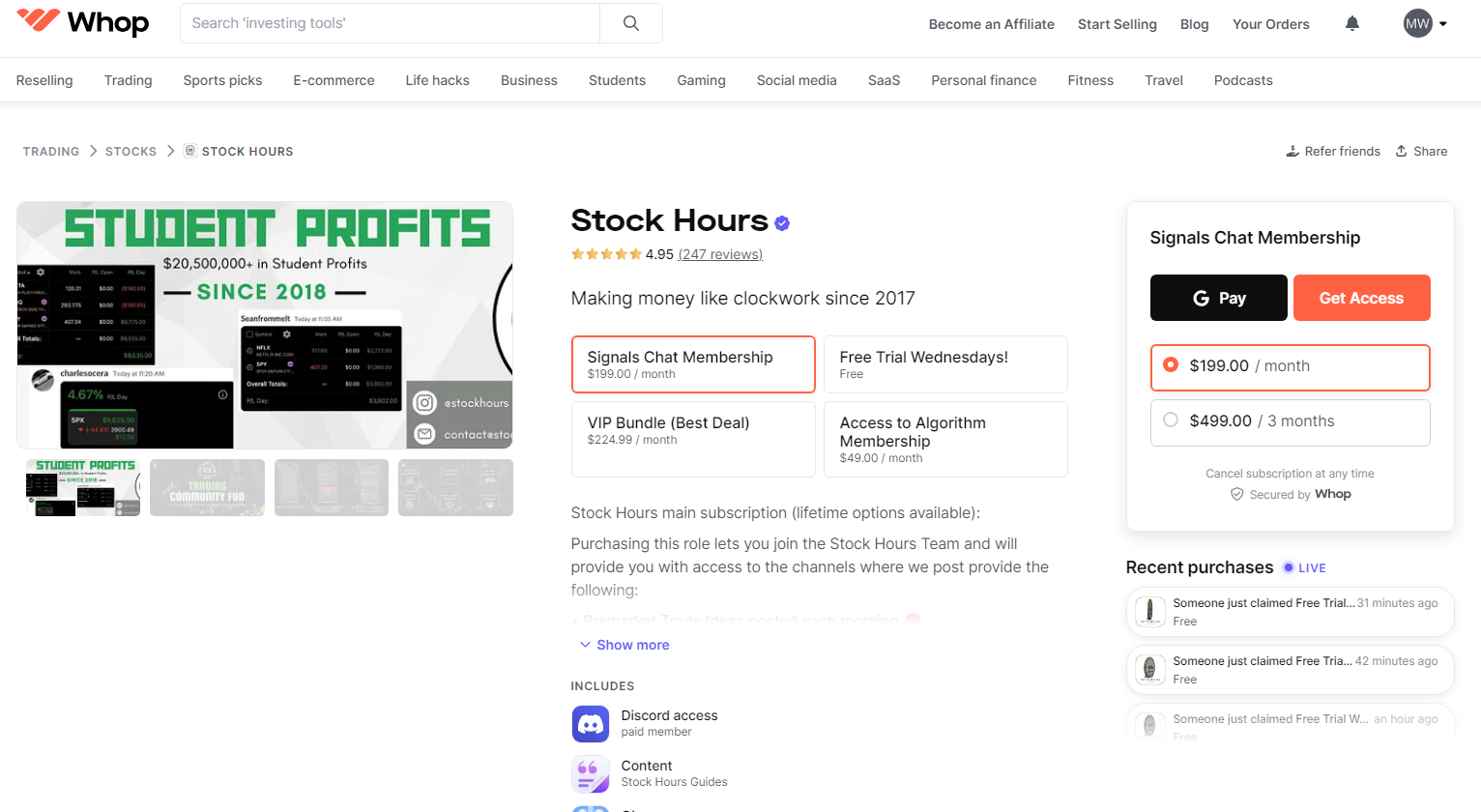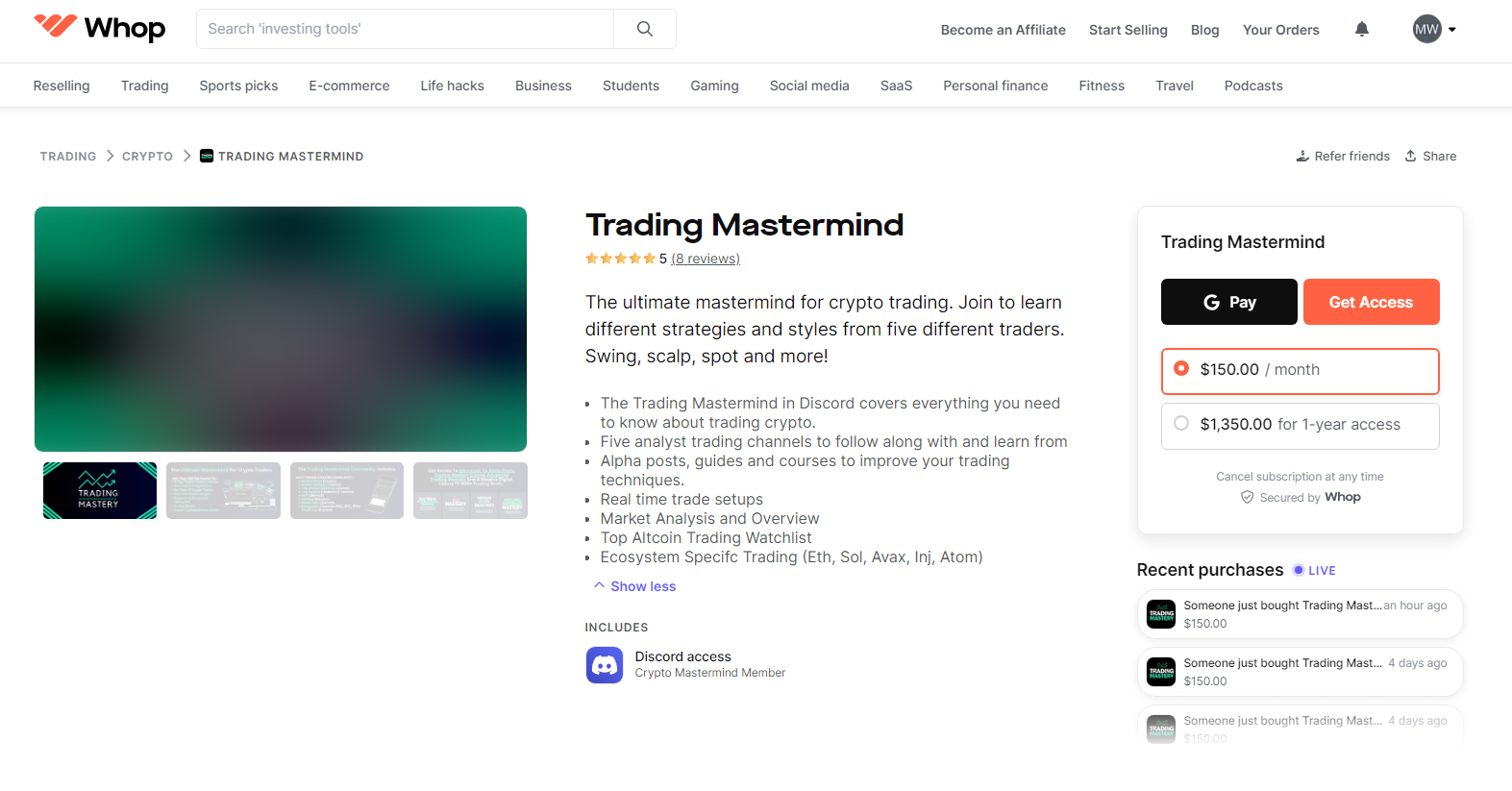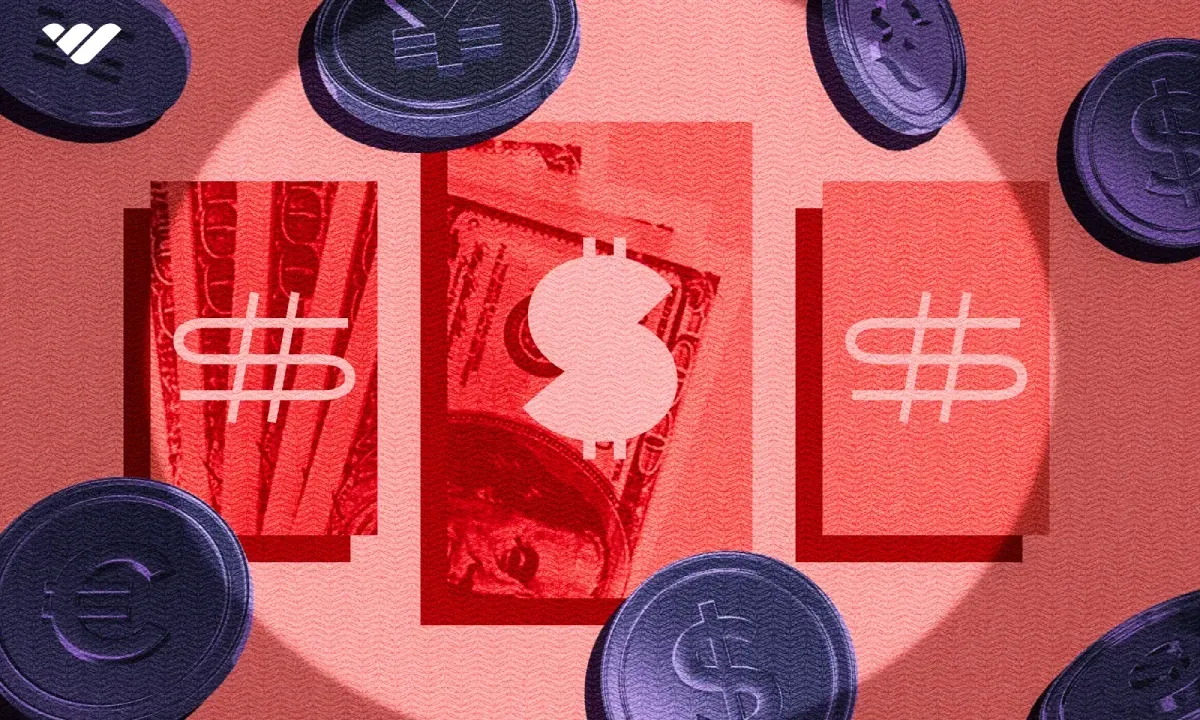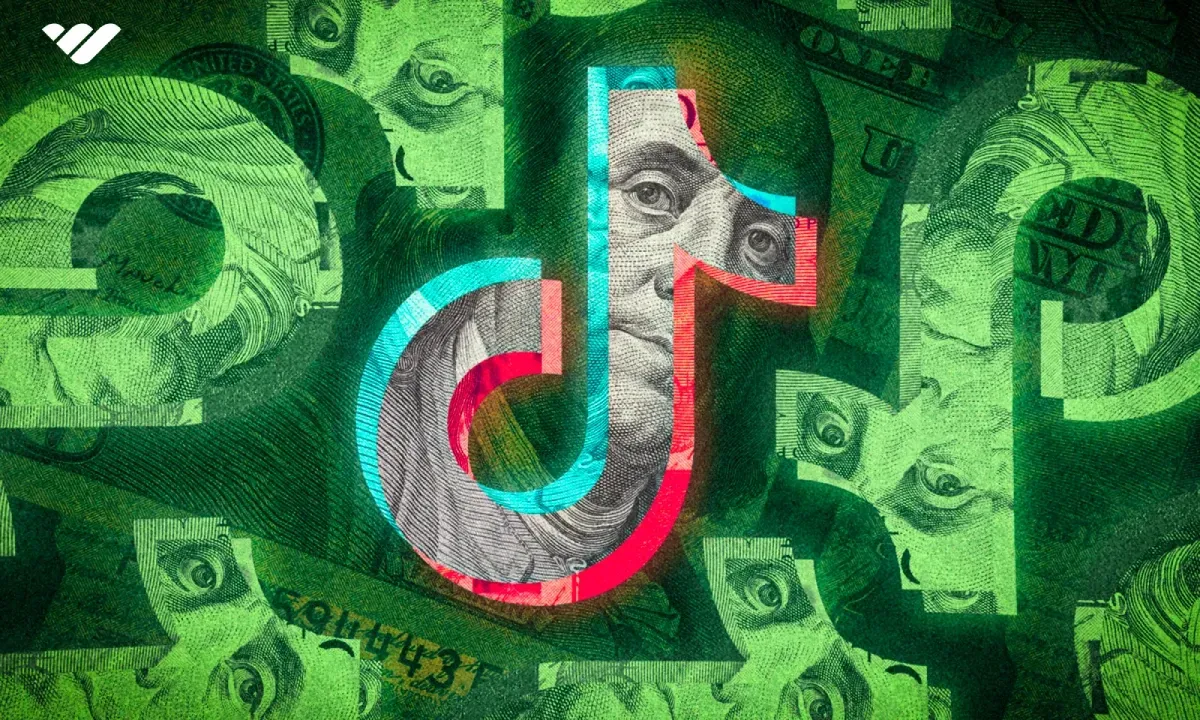How do you combine doing something you love with making big bucks? There are many ways, but one of the more underrepresented methods is running an online community.
That's right—that Discord or Telegram server you're already running, or have been thinking of starting, could turn into a full-time job. We don't just mean time and effort-wise, though. There's money to be made in running an online community, and it's largely thanks to the current state of the creator economy.
We live in an era of content creation, and this is highlighted by the expected growth of the creator economy market, which is projected to skyrocket from the current (not too shabby!) size of $127.65B up to a massive $528B by 2030.
How do you get started? That's where we come in. We're here to show you all the various ways you can make money with your online community, and trust us—it's worth your time.
Why You Should Monetize Your Community
Running a community takes a lot of time and effort, but it's a rewarding experience that lets you share what you're interested in with others. Fortunately, there's next to no reason why it shouldn't pay you a good amount of money, too!
Below, we'll dive into the reasons why monetizing your community might be the right move for you.
It's hard work
Let's be real—even if running a community is fun, not to mention an excellent opportunity to meet like-minded people, it's not exactly a walk in the park.
Just getting established is time-consuming, as most people start from scratch. You've already spent time deciding on the scope of your community, finding new members, moderating the chat, and coming up with events and other ways to keep things active.
Getting a community to a place where it's thriving, with members who regularly chat and trade useful insights, is really hard work—and the work doesn't end there. While monetizing a community can be considered passive income, it still requires daily supervision and creativity to keep the members engaged and the group growing.
Doing this takes a lot of time, patience, people skills, marketing, and perseverance. Running a community is simply no walk in the park, and that's why you should be paid for all your efforts.
Content creation is a full-time job
Running a community can be considered a form of content creation—especially if your community goes above the usual scope of "just chatting." When you're an expert in your field, your community can become a hub for all things related to that topic. Oftentimes, these communities are later used as a way for others to make money or better themselves.
For instance, if you're running a sports betting community, just infusing it with your own expertise is a form of content creation. Add to that running masterminds, offering coaching sessions, or writing ebooks, and you're a full-on content creator.
There's enough work for this to replace a full-time job, so why shouldn't you get paid for it?
It's not as "free" as it might seem
Sure, opening up your own Discord server or Telegram group won't cost you a penny, but that doesn't mean that running an online community is free. It's really, really not, and at the very least, you should be paid so that you can cover your outgoings.
Internet and electricity bills both cost you, and if you spend the majority of your free time on improving your community, that's essentially money you're spending on that.
Upkeep costs money, too. Most serious Discord servers have Nitro, and if your members aren't contributing enough, that can add up to a hefty sum that you're paying out of pocket. The same applies if you have a website, an app, or anything else—all of that stuff is an extra cost.
Lastly, the expression "time is money" comes to mind. Every minute you spend on your community makes it better, and your members benefit from it, but those minutes add up to hours that you could spend earning money at a job. Might as well make this your (perhaps part-time) job instead!
It may help you grow your community
This one might sound a little counterproductive, but your community may grow faster and healthier if you monetize it. Sure, locking it behind a paywall does mean that some people will not join, but for the people who do, it only means great things.
Private, paid communities tend to be largely free from the problems that plague your typical Telegram chat or Discord server. You'll see far fewer spam bots, lurkers, and trolls.
Once someone pays for access, they'll want to know that they're getting their money's worth, which means they'll be more active in the chat. This encourages trading insights and building a sense of belonging, both of which are great for the health of any online community. After all, no one pays to subscribe to a Discord server just to watch tumbleweeds roll by.
Members also won't have to worry about their privacy as much when every member is verified and pays to be there, which means they'll be even likelier to trade useful information, such as dropshipping tips or reselling trends.
Passive income? Yes, please!
Assuming you're decking out your community with some self-made content, you can use it as a good source of passive income.
Whether you just establish it and then leave it in the capable hands of your mods, or you regularly post your own content, such as betting predictions or courses, it's only fair that you get paid for it.
You can monetize this content by sharing it on your server, but with Whop, you can set up your own digital storefront and set different prices for all sorts of things.
For instance, you could charge a subscription for entering your Discord server, and a flat fee for access to your ebooks. There are a lot of ways to earn passive income as long as you're willing to try.
11 Ways to Monetize Your Online Community
Now that you've decided to start getting paid for your community leadership and content creation, you might be thinking that the only way to monetize a community is to collect a one-time fee for joining it. Good news: that's not true!
There are plenty of things to get paid for. Let's go over them below.
1. Paid memberships

This is the bread and butter of getting paid for running an online community. Paid memberships are essentially subscriptions that keep the money coming month after month, and behind that so-called paywall lies access to your community—but many creators expand on that to include even more content.
A good way to get started is to offer a free trial period so that members can check it out, but will still be billed when the trial is over unless they cancel. That way, you should be able to avoid random spammers and only get people who legitimately want to try out your community for their own needs.
Paid trial or not, offering subscription tiers is a versatile way to make money. You can offer several membership tiers and set up community permissions according to the subscription tier. In addition, if you publish ebooks, sell courses, or offer other benefits, all of this can add value to your subscription and keep that money rolling in.
2. Virtual events

Hosting virtual events is another way to both get paid for your time and make your community even more prestigious. Both pay off in the long run, and let's not gloss over the fact that setting up a virtual event can make for a fun challenge.
Virtual events range from webinars and workshops to large-scale conferences, and as the name itself implies, they're all hosted online.
The exact scope of these events comes down to your creativity and to your industry. For instance, if you're running a server based on crypto, a virtual event could mean hosting an expert-led webinar about the future of NFTs or a panel discussion with your community experts on the current state of the bull market and the best altcoins to invest in.
Events are also a good opportunity to upsell some of your other services. Let's say you're hosting an event; you can include a bundle of your course materials or an ebook in the price of the event as a little teaser, and then try and sell the rest to the attendees. This is as effective as it gets in terms of marketing strategy—you're pitching to people who already want your content.
Some virtual events might have an upfront cost, for example, if you want to hire a speaker. However, most communities can run them at no cost, and if they provide real value, you can charge a flat fee, tiered pricing, or bundle these events as part of your membership.
3. 1:1 Coaching

Events can mean dozens or hundreds of people all huddled together, but one-on-one coaching can be infinitely more effective in some cases. In certain communities, people may be willing to pay big bucks for the chance to talk to you specifically and let you help them with their particular case.
This type of coaching can cover a lot of different industries. As an example, online personal trainers often sell fitness programs, run motivational communities, and offer private sessions to help their clients. Similarly, a crypto guru, an expert in finance, or a business consultant could do all of the same. It all comes down to being willing to share your knowledge.
You can monetize coaching sessions in various ways. If you're selling tiered subscriptions, this is a good way to entice your customers to pay for that highest tier, assuming you include a one-on-one chat with you as part of that payment. Similarly, you can offer a flat price for a coaching call or even let your customers book a time to see you if you use Whop to sell your services.
4. Masterminds

You may be the guru in your group, but what if you wanted to be more of a facilitator of meetings between experts like yourself? That's what mastermind groups are for, and those who manage to gather several such masterminds in one place can charge a premium price for letting new members join and benefit.
Unlike a typical group coaching session, mastermind groups focus on mutual growth and shared success. They're not one-sided lectures but rather a collaborative space where each member, including you, brings something to the table.
Mastermind groups are especially popular in communities centered around dropshipping, reselling, stocks, and crypto, as insights from various experts can be largely beneficial in groups such as these. However, just about any group can benefit from a gathering of experts who share tips and tricks, and if that knowledge can be turned into money, people will be willing to pay for it.
5. Courses

Selling online courses is one of the best ways to supplement your paid community with extra value. In fact, there's a rare kind of synergy between selling courses online and running a paid community, and both benefit from each other.
If making courses is your primary way of content creation, then running a paid community alongside that is the best way to supplement it. This gives members the chance to interact with you and with each other, get help when they need it, and motivate one another as they learn. Peer motivation plays a huge part in successfully completing online learning content.
On the other hand, if you're running a community and sharing your knowledge there, putting it together into a course can entice newcomers to join the community and learn more.
Many people charge flat fees for courses and subscriptions for community access, but you can mix and match.
6. Downloadables

The term "downloadables" encompasses a vast range of digital products, such as ebooks, Notion or Figma templates, software, mobile apps, Discord bots, and digital assets, such as graphic templates. It's basically everything you can download and do something with, and selling digital products is a great way to monetize your community and upsell to your existing members.
Ebooks, especially, are a big one to pair with paid communities. Chances are that your community stands on a strong foundation of your own knowledge and is strengthened by the insights shared by the people in it. Put that together into a handy how-to guide and sell it at a separate price or bundle it with the subscription fee for your community.
Not only do downloadables fetch their own price and make you money (not to mention passive income), but they also increase the value of your community. Win-win!
7. Newsletters

If you consider yourself to be a pro in your particular niche, you can make money by running a paid newsletter. This is a bite-sized version of your community without the networking, where you can share your insights and let your followers benefit.
Newsletters are widely used in many niches, from lifestyle to fitness to finance. There are ways to automate the sending of your newsletter to people who paid for it, but you can also just utilize your community for this purpose.
For example, if you run a Discord server, you can use Whop to assign your newsletter a separate subscription tier. Then, the Whop Bot will assign permissions as needed so that only newsletter recipients will see the channel where you'll post the newsletter on a regular basis.
This is a good way to keep your community fresh and up to date, give the members something to look forward to, and establish yourself as an expert.
8. Donations

If you don't want to get paid outright but still need some help covering your outgoings, accepting donations is one way to do this. While it's not as sustainable as setting up a subscription-based server, it's still money—you just can't predict how much of it will be coming in every month.
Content creators often turn to platforms like Patreon or Ko-Fi to receive donations from their members. PayPal, Venmo, CashApp, and similar options are also commonly used, although some members might feel a bit apprehensive about sending their money to someone they don't know through these platforms. Another option is using a Whop checkout link, which you can simply share with your community to direct members to make a payment.
As a last resort, you can also set up a fundraiser to keep your community afloat.
9. Branded merch

Running a community lends itself to making branded merch. After all, you're all there due to a shared interest, and if the community exists for long enough, there are bound to be some memes that can make for a funny t-shirt or mug.
Websites like Redbubble let you utilize their print-on-demand services to sell merch. Be mindful that they'll be taking a cut, though, and you need to prepare the designs yourself (or hire a graphic designer).
This method works especially well if you're an all-around content creator with a YouTube or Twitch channel or some other form of social media presence.
10. Sponsorship deals

Once you've built up a name for both yourself and your community, you might be able to get sponsorship deals from relevant brands or influencers. For example, if you're a recognized crypto trader with a social media following and a dedicated community, you can bet that you'll eventually have some brands reaching out, be it VPN software or a brand that makes hardware wallets.
At that point, it's up to you how to monetize it—whether you'll be posting about it in your community, running a giveaway for your members, or posting on your socials. Be careful, though, because most people (and, more importantly, local laws) now expect to be told when you're running an ad as opposed to just sharing friendly recommendations.
11. Free content

Although counterintuitive at a glance, sharing free content is a great way to monetize your community. Nothing entices people to sign up for that subscription or shell out some cash for that one-time fee like free content that shows them you know what you're about.
This is why some huge servers run events such as "Free Friday" when members can sign up for free on a given day of the week, check out the server, and decide if they're ready to commit when the day is over. Others give away free samples of ebooks and courses.
Moreover, if you regularly share content online, be it on Reddit, YouTube, or TikTok, you'll naturally generate some organic traffic for your online storefront, and that's just a hop and a skip away from selling another subscription.
How to Turn Your Community Into a Business With Whop
You already have what it takes to run a successful online business. You're passionate about something, you have plenty of knowledge to share, and you know how to make people interested and get them to commit their time to your community.
Ready to turn those skills into a successful business that could even replace your full-time job? Not sure where to start? The answer is Whop.
Whop is the number one choice for selling access to paid communities. With Whop, the whole process takes 10 minutes from signing up to having a full-fledged digital storefront where you can sell any of the following:
- access to Discord and Telegram communities
- online courses
- ebooks
- one-on-one coaching
- templates
- workbooks
- masterminds
- access to virtual events
- SaaS
- …and much more
Whop lets you set separate prices for every product you sell, as well as subscription tiers. You can entice new members to sign up with free trials, offer flexible subscription plans ranging from 7 days and 1 year, and offer a discount code to members who might want to cancel.
On top of that, Whop takes care of all the annoying parts of running a paid community. Whop automates the whole process for you by sending out invite links to customers who paid, and the Whop Bot takes care of management by assigning roles and keeping tabs on everything.
Take advantage of Whop's automation tools, industry-leading fees, and huge marketplace with an established user base. You deserve to get paid for your hard work—now's the time to make it happen!




![Top 10 Best Forex Trading Discord Servers [2024]](/blog/content/images/size/w600/2024/05/Top-X-Best-Forex-Discord-Servers.webp)